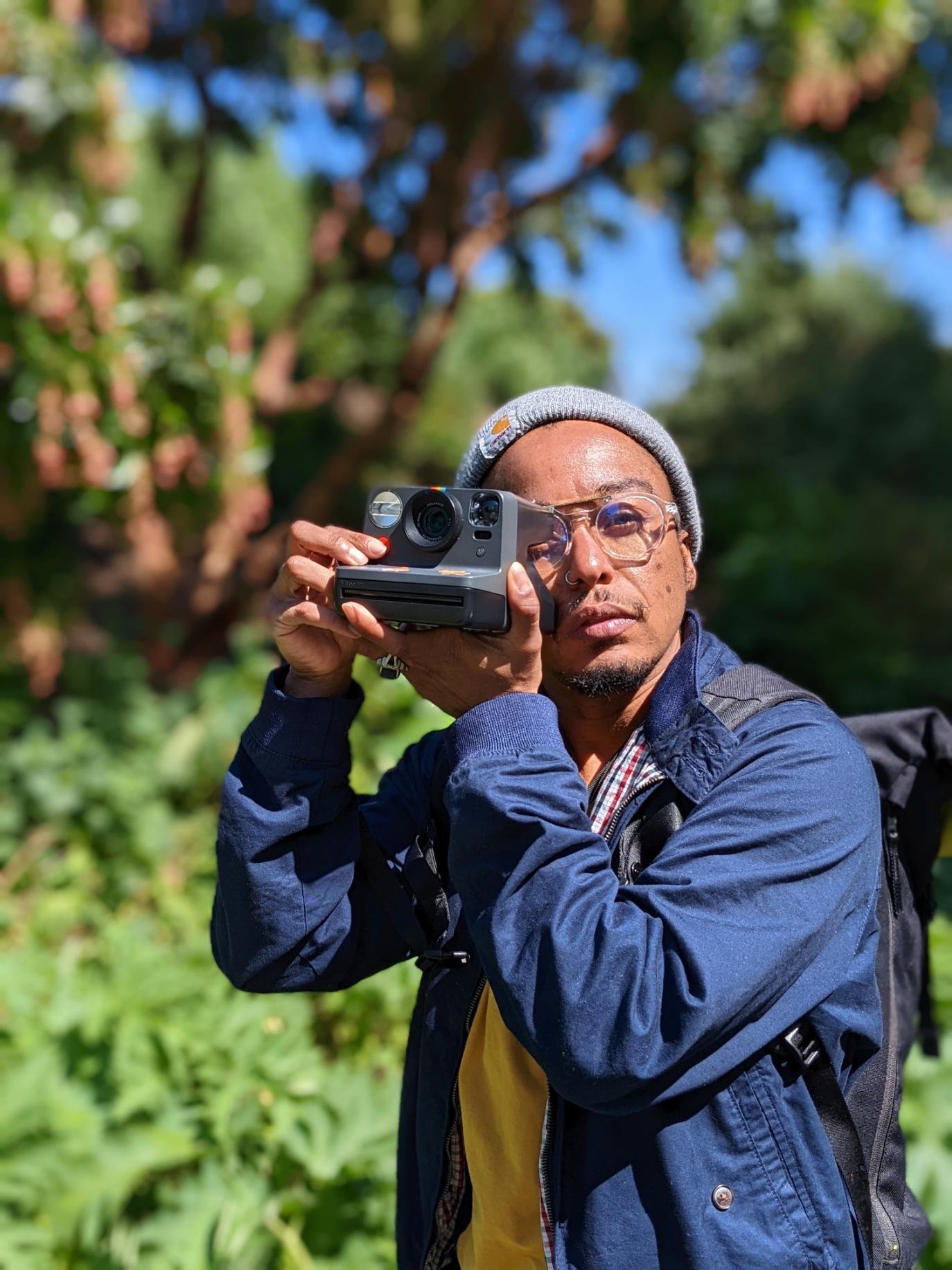PODCAST: ARTIST Mason J.
Meet Mason J., artist, poet, historian and a member of Still Here SF, an intergenerational cultural preservation project amplifying the voices and creativity of LGBTQ2S+ Black, Indigenous, and people of color raised in San Francisco.
Photography by Jeff Hunt
Welcome to our monthly podcast, produced in Partnership with Storied: San Francisco and hosted by Jeff Hunt.
Note: Our guest this week raises issues, true stories from their own life, of sexual and gender-based violence. Listener discretion is advised.
This story starts in 1978. A young San Francisco punk rock woman with two kids saw that many of her peers were getting hooked on drugs. Suddenly, there was an influx of abandoned children and she decided to do something about it. She established a foster home.
Fast-forward 10 years and newborn Mason (not known by that name at the time) comes around and ends up at said foster home. Born to drug addicts, Mason entered this world addicted themselves.
Mason ended up being raised in that one home, and only that one home. They've never been in a shelter system or homeless.
From a very early age (four or so), Mason was acting, doing voiceover work, and modeling. Around age eight, they noticed that things were starting to get gendered and that they didn't fit either mold—male or female. Producers also told Mason that they sounded "too white" (they're Black, indigenous, and Mexican) and that they should try sounding "more Black." But at home, Mason's mom supported their being gender non-conforming at that time.
Around 12, they were waiting for puberty and playing lots and lots of soccer. Other coaches were suspicious enough to investigate whether Mason's coach was disguising a boy as a girl on the girl's soccer team. That fizzled, but Mason kept playing. They were competitive and good enough to be scouted by some colleges while in eighth grade. But a torn ACL when they were 13 dashed those dreams.
They spent that summer recovering, lying in bed waiting to get their period so they could get surgery for the torn ACL. They went back to art and started writing and building up a portfolio, which helped them get into Ruth Asawa School of the Arts.
Mason thrived in high school. They talk about all the guest speakers and various programs and internships students at SOTA were involved in. They also mention, laughingly, some of the more savory elements of arts high school in San Francisco in the early 2000s. Inspired by teachers and an intentional immersion in The City's various art worlds, Mason left high school aimed toward an artist's life. But there were issues along the way, which they delve into in the podcast. Eventually, through that struggle, they landed on photography, opening their own photo company in 2007.
In 2010, they were, as they say, dating someone out of their league. They were celebrating New Years at a joint in South of Market and needed to pee. Naturally, they went outside. When it was their partner's turn, she gave Mason her purse. An SFPD cop approached and questioned what Mason was doing with her. After the cops' condescending questions, they grabbed Mason and ended up dislocated their arm.
Meanwhile, one of their friends had been roofied inside (they didn't know this at the time) and was very ill. The cops left at the sight of the sick friend. But there happened to be an ambulance within eyesight, so they set off to catch it. But the EMTs were drunk (remember: it was NYE).
Everyone went home in the East Bay and Mason was left to walk to their SF home with their dislocated shoulder. This effectively ended their photography career. In 2011, the PTSD from the episode and the depression it caused inspired Mason to leave The City for Portland.
The anonymity they experienced in a new town allowed Mason to present however they felt comfortable doing so. When the question of renaming themselves comes up, Mason takes a sidetrack to talk about their Okinawan grandmother. It was her story of being exiled, first to Hawaii and then to San Francisco, that inspired Mason to delve into history while in Portland.
Alarmed at the prospect of not being able to move back to their hometown, Mason returned to San Francisco in 2013. Later that year, the residents at MidTown Park Apartments, where Mason had grown up and where their mom still lived, were served with rent-increase notices. (For more info on the ensuing rent strikes, which eventually fought back the increases, at this city-owned property, check out this Examiner article.)
The history of the place goes back to "redevelopment" in the 1960s. Its residents had been displaced and promised new city housing. Several of the older tenants buckled under the subsequent stress caused by proposed hikes and relocation (yet again). One of these was Mason's grandmother, who suffered a stroke around this time.
All of this gave Mason a new purpose, a new direction. They would devote their life to exposing wrongs and doing everything they could to right them. And they're uniquely positioned to effect change because they grew up immersed in tech.
We talk about Mason's being a member of Still Here SF, an intergenerational cultural preservation project amplifying the voices and creativity of LGBTQ2S+ Black, Indigenous, and people of color raised in San Francisco. Mason joined to help them heal from the trauma of growing up going to so many funerals of friends and relatives who died of AIDS. Their involvement with Still Here led to their work with the Hormel Center, the SF Public Library's LGBTQIA archives.
Among other passions, Mason spends time finding and telling the stories of the queer people who were at Jonestown. We breeze through the last four years since we met Mason, and end this podcast with their thoughts on what it means to still be here in San Francisco.
You can buy Mason's book, Crossbones on My Life, over on the Nomadic Press website.

